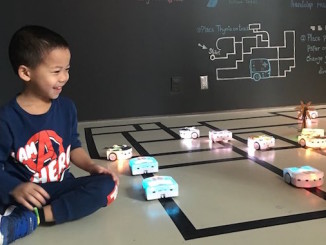For the past 6 months, the classrooms of Toronto have been quiet and solemn. Not a single child has been heard squealing on the playground, nor have they been seen eagerly awaiting the results of their plant germination biology labs. Instead, students and teachers have connected over online applications, seeing each other only in pixelated form.

As a new school year is dawned upon us, both prolonged isolation and the variability of education quality over the last leg of the 2019-2020 school year have manifested in feelings of stress in students and educators alike.
With such an unprecedented situation, comes uncertainty about how we will run the systems that Toronto so heavily relies on. In terms of our public schooling system, students and educators have been kept on their feet for the last few months, as the provincial and municipal governments have scrambled to rework the education infrastructure that millions have carried out for the last decades. As these new systems and protocols are sporadically morphing and changing, many students and educators have been displaced from their classrooms or have been unable to return to school physically, left working in confusing conditions unable to attend classes or to perform their jobs to their entirety. In addition, many secondary students have been left in the lurch regarding the nature and status of their summative assessments, course timetables, course syllabuses and university applications.
Following their original effort to identify and support local communities with donations of personal protective equipment (PPE) to hospitals and funds for food banks, the charitable extension of Honda, Honda Canada Foundation (HCF), has recently partnered with Kids Help Phone to broaden their scope of magnanimous efforts. “The Foundation has pivoted several times since the pandemic began, to adapt to changing needs, and provide support for services required in our communities,” says Tony Facciolo, Chair of the Honda Canada Foundation. “We know the past few months have had an impact on everyone’s mental wellbeing, including our children, where many have been in isolation at home. Through this partnership, our goal is to ensure that young people have access to professional counsellors and crisis responders during these times of uncertainty.” The funds generously donated by HCF will be going towards the new programs being launched by Kids Help Phone this school year.
After conducting a recent post-text survey, Kids Help Phone found that one in three texters are experiencing symptoms of stress in regards to the return to school. The kids help phone is Canada’s only 24/7 e-mental health service offering free, confidential support in English and French to young people. In an effort to resurrect this widespread anxiety, Kids Help Phone is offering a variety of helpful virtual resources for both students and educators, including Counsellor in the Classroom teleconferences (for elementary students), new social media channels for Good2Talk Ontario (for secondary students), a back-to-school checklist outfitted for COVID-19 regulations, tips to support youth with back-to-school during COVID-19 (for parents), and a virtual toolkit for educators.
It is with sympathy and good intentions, that the Kids Help Phone strives to aid the mental wellbeing of as many people as possible during this transition, amidst an unusual feeling of unrelenting anxiety and uneasiness. Dedicating her time and energy to those who will need it this school year, Katherine Hay, President and CEO, Kids Help Phone ensured that “Through this partnership, we’ll ensure young people, parents and educators have the tools and support they need, 24/7, to help in this challenging back-to-school transition.”
If you need support text 686868, call 1-800-668-6868 or visit their website.




